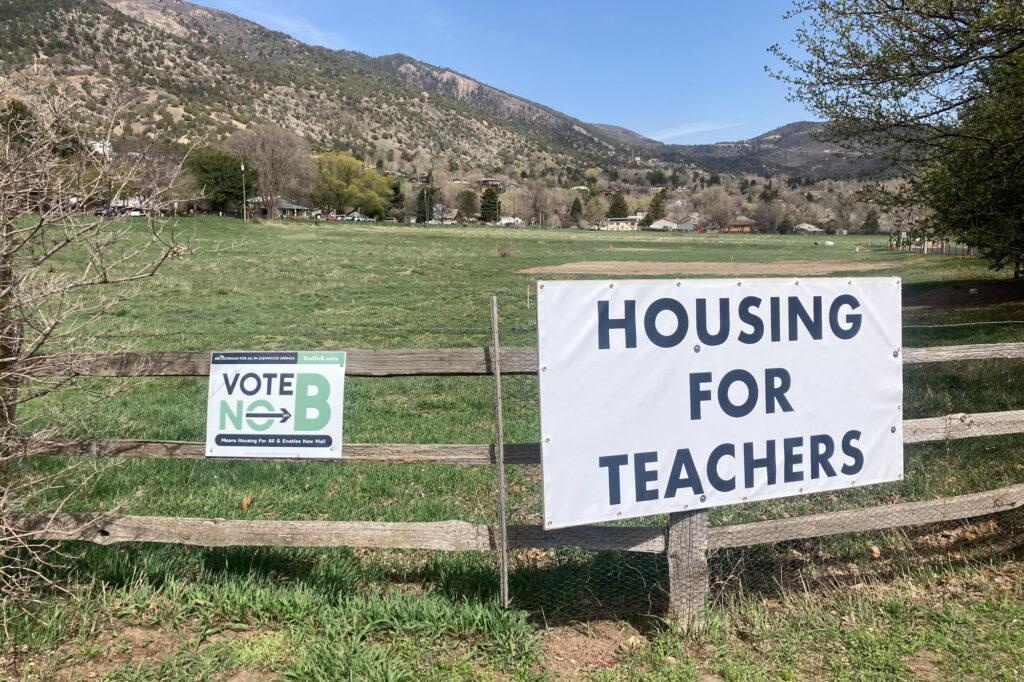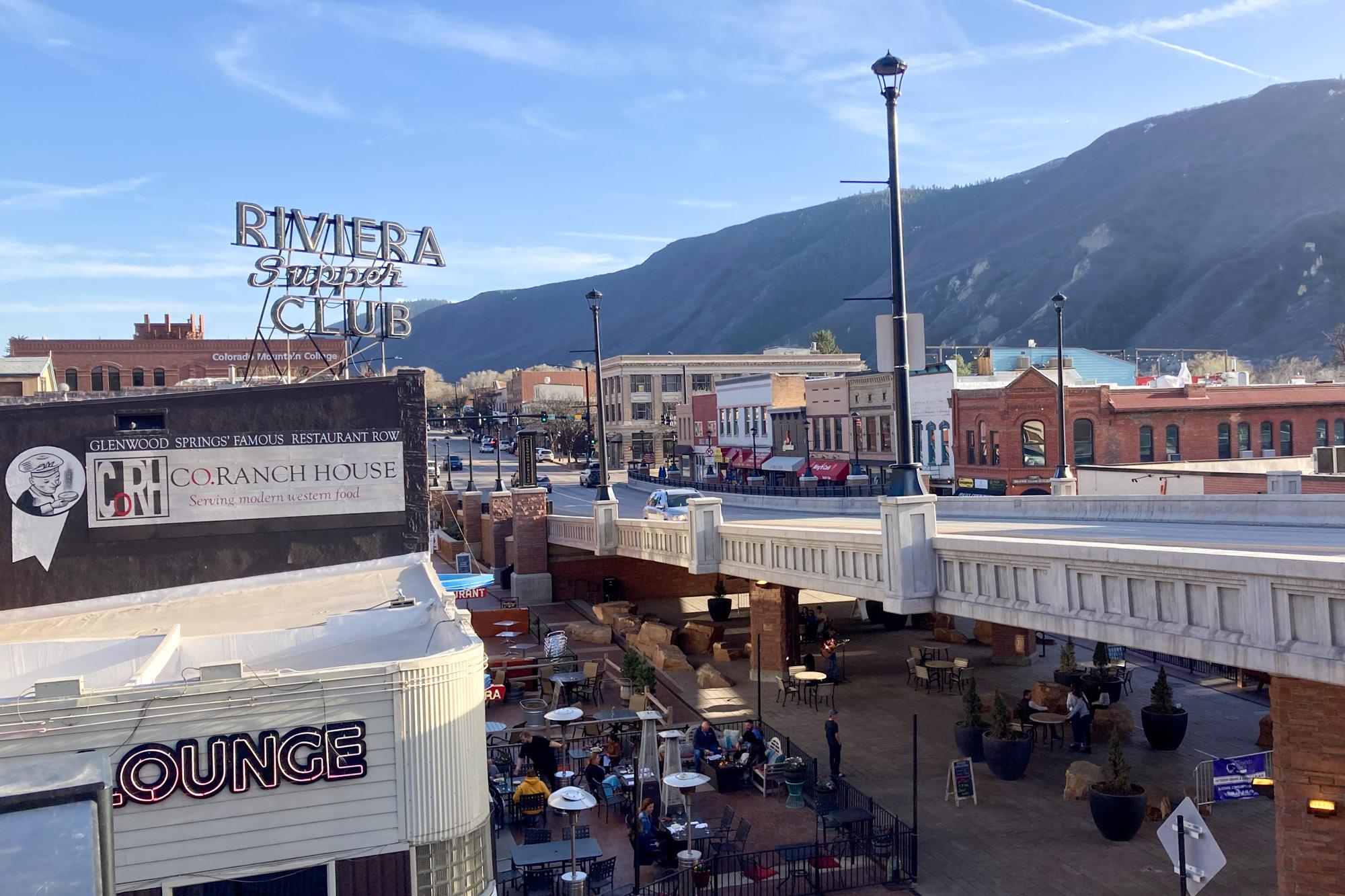
The past, and perhaps the future, of Glenwood Springs is behind the old mall on the west side of town, where a 12-acre pasture covered in green grass may soon hold 300 townhomes and apartments.
“Our valley needs more housing. It’s a dramatic problem,” said 84-year-old Floyd Diemoz, whose parents bought the plot in 1960.
He and his son John hope to sell the land to R2 Partners, a Cincinnati and Roaring Fork Valley-based developer behind the 480 Donegan proposal. Sixty of the homes would be deed-restricted affordable units starting at $1,250 a month, the developer said.
Some city leaders hope the project will boost the redevelopment of the nearly empty mall and help make a dent in Glenwood’s crushing housing problem. A 2019 report put the city’s housing shortage at about 2,000 units.
“That would be a game-changer,” Mayor Jonathan Godes said, adding: “This is an investment that we need to make economically, for our housing stock, for our kids, and for the citizens of west Glenwood.”
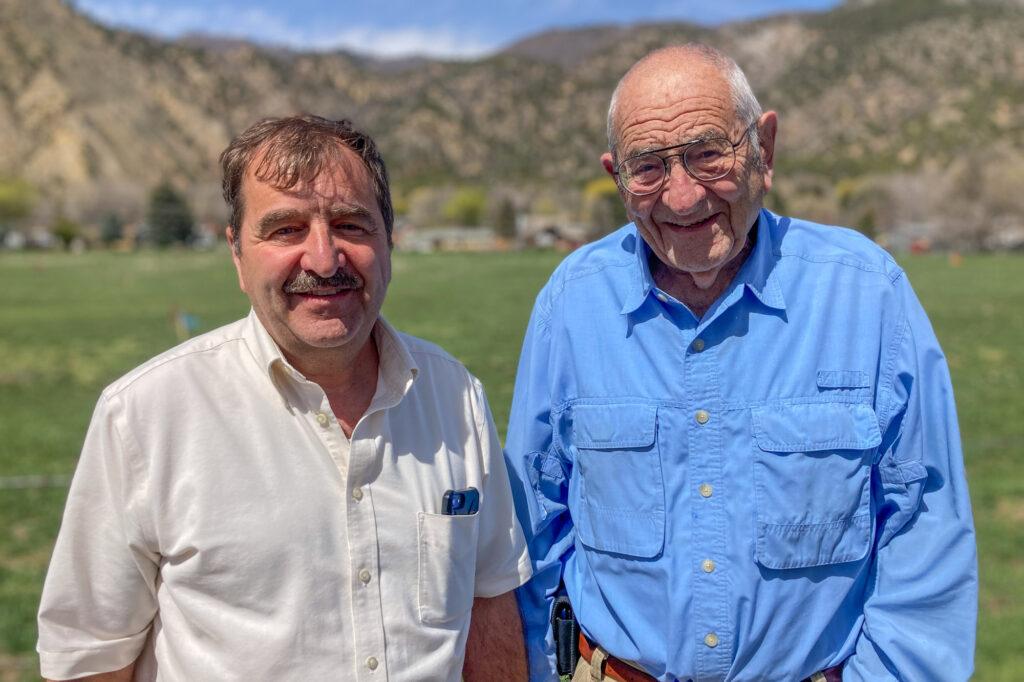
But citizens, alarmed by a number of new housing developments around the city, have rallied against the project. They collected enough signatures — nearly a thousand — to force the City Council to reconsider its annexation and rezoning of the pasture and four acres of adjacent commercial land. The Council ultimately let voters decide the issue. Ballots concerning the fate of the project will be counted on May 3.
“People are fed up with the city's priorities, their tone deafness and their high-handedness,” said Laurie Raymond, a local small-business owner and member of Glenwood Springs Citizens for Sensible Development. “It feels like the city is definitely for sale.”
The vote comes as Glenwood Springs, like many other communities in Colorado, is undergoing rapid change. For decades, it was one of a handful of down-valley communities where workers in expensive cities like Aspen could find a cheaper — if not truly cheap — place to call home.
But now, housing costs have risen so much that Glenwood must import thousands of its own workers from cheaper cities like Rifle and Silt, setting off a fiery debate over who the city is for and how it should be built.
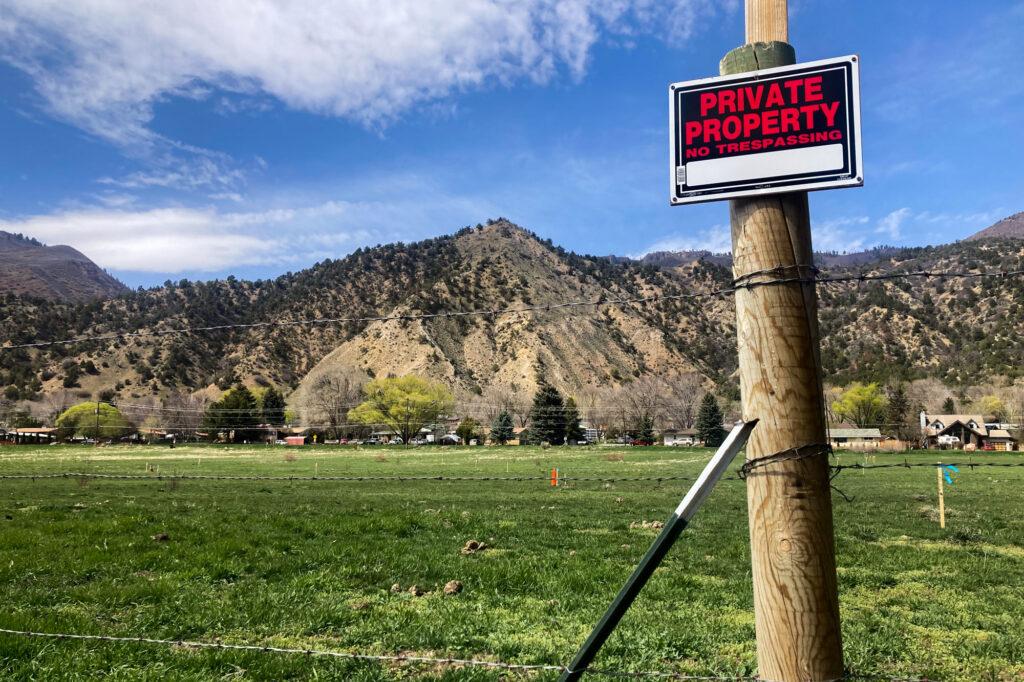
A privacy fence is all that separates Ardeen Arbaney’s backyard from the proposed development.
She moved to Glenwood Springs more than 15 years ago and said she often sees deer and geese in the pasture. Valley walls to the north and south, which also limit the city’s footprint and its development opportunities, tower overhead.
“It’s beautiful,” she said of her backyard view.
Arbaney and other residents CPR News spoke with admit that while Glenwood Springs — and much of the region — has an affordable housing problem, they are skeptical that new housing developments are a sure-fire way of bringing prices down.
They are far more certain about the negative effects of growth, like traffic and obstructed views. The tallest buildings on the 480 Donegan project could stand 53 feet high.
Arbaney fears increased traffic could make evacuation during a potential wildfire even more difficult than it already is. A 2020 fire caused massive delays on that end of town, which has only one access point to Interstate 70. City staff is working with state and federal authorities to create new emergency access lines to the interstate.
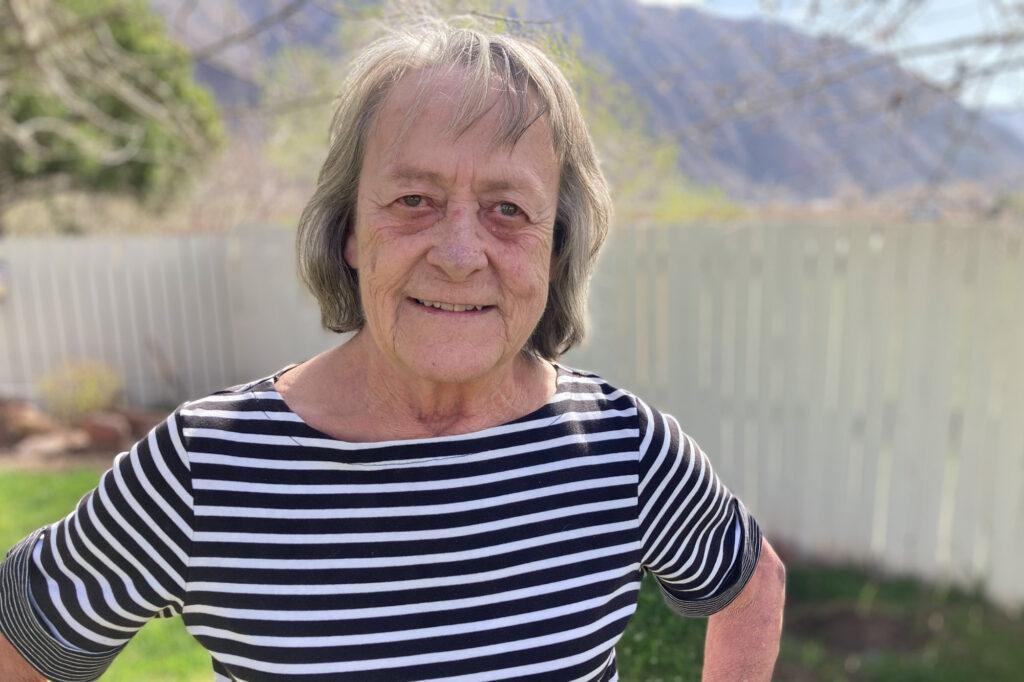
Other objectors have raised the possibility that Glenwood Springs might not have enough water to serve the new development. But the city’s long-range senior planner, Trent Hyatt, said the city has plenty.
Such measures and explanations don’t allay Arbaney’s fears. “It's gonna be a nightmare for all of us that live here,” she said. “We just don't want it.”
Arbaney and residents with similar views feel like the city is under siege from a pandemic-era influx of tourists and remote workers. They also believe new developments like the mixed-use Glenwood Meadows area and the four-story Six Canyon apartments are sacrificing the city’s character.
“We couldn’t possibly build enough in Glenwood Springs to accommodate all the people that would like to come and live here cheap,” said Martha Cochran, who moved to the city 48 years ago. “How do you take care of your workforce and essential workers … and not just subsidize the world coming to overrun what they think is here?”
Some city leaders say growth and affordability go hand-in-hand.
After seeing steady growth from 1980 to 2010, Glenwood’s population flatlined around 9,700 through much of the 2010s before ticking up to over 10,000 as new housing developments opened in the last few years.
However, home prices have risen steadily in recent years — and especially quickly in the last 12 months. The median sales price for a single-family home in Glenwood Springs is now around $800,000, up nearly $200,000 since January 2021. And the number of in-commuters to Glenwood has risen to 3,500 a day, up by more than a thousand since 2010.
More residential development — including new affordable housing — is a key way the city can try to put the brakes on those trends, said Mayor Godes. The 60 affordable units in the 480 Donegan project are the most ever destined for a single housing project in the city, he said.
The city is in the midst of collecting community input and updating its decade-old comprehensive plan, which could shape the city’s future. Godes is worried that the process and the upcoming vote may show that current Glenwood residents want to halt growth.
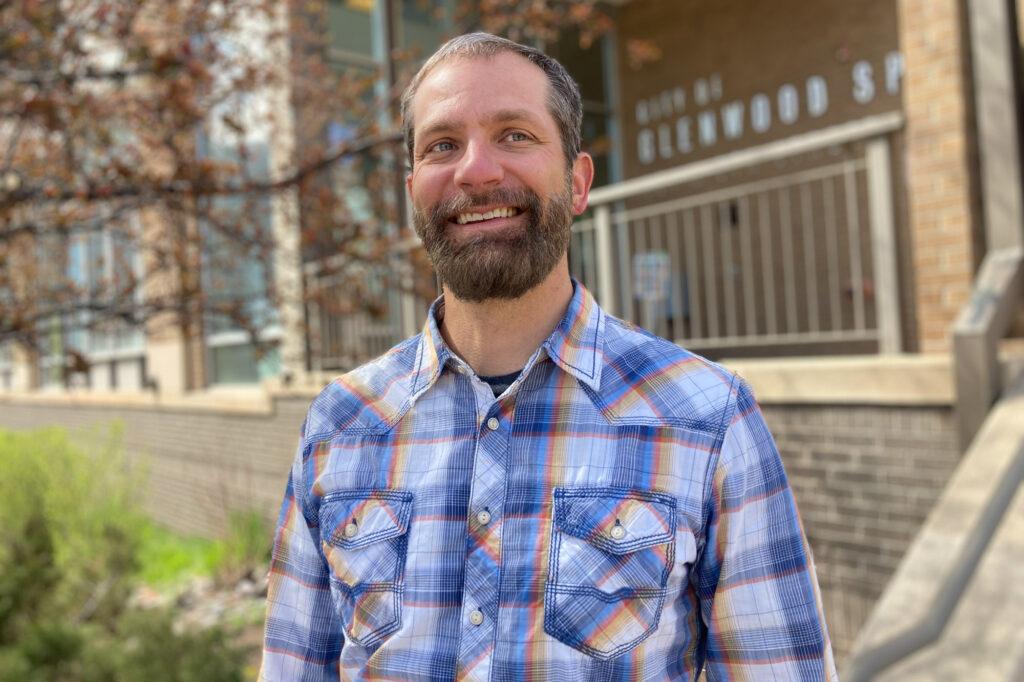
“I don't think that anybody feels that they are making decisions that are making the community less diverse, less livable, less working class. But that's exactly what's happening,” he said. “People will wake up in 10 years and go, why can't I afford to live here? Why can't my children afford to live here?”
Alex Sánchez, president and CEO of Voces Unidas de las Montaña, an advocacy organization in the central mountain region, also has argued that more housing is key to keeping the growing Latino population in Glenwood Springs.
“What will we do without a working class?” he said. “How long can we sustain the Aspens, the Vails, the Breckenridges of the world if the working families have to move three, four hours away?”
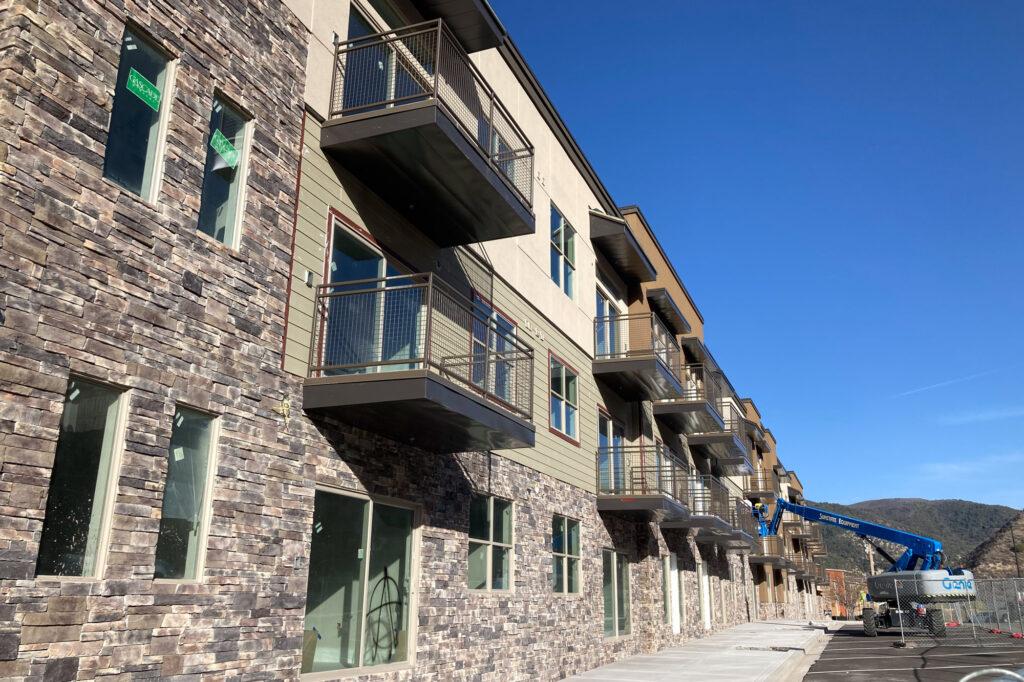
One relatively new resident, Marjorie Jerez, moved to Glenwood three years ago to do mapping and data work at a government agency. The 30-year-old native Floridian said she loves the city but doesn’t think she’ll be able to afford it in the long run.
“It’s so frustrating,” Jerez said. “I have a great, amazing job, but I wish I could put more money toward savings or actually be able to eventually put down for a home. And I don’t see that living here.”
Jerez agrees with long-time residents who don’t want to see Glenwood paved over completely. She wants greenspace protected and any new development to be only for the local workforce.
But Barry Rosenberg, managing partner at R2 Partners, said they need market-rate housing to subsidize the cost of building affordable units. This suggests that Glenwood will likely need to keep growing if it's going to add more-affordable homes. City leaders will learn next week if voters will let one piece of that happen.
